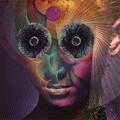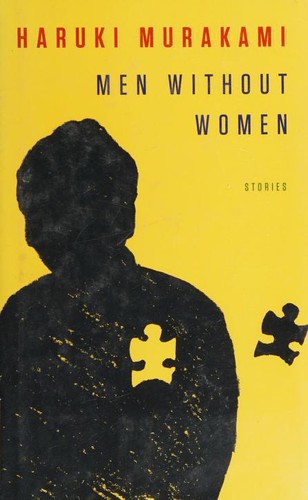isa reviewed Men Without Women by Haruki Murakami
Review of 'Men Without Women' on 'Goodreads'
3 stars
I don't like Murakami's characters. I mean, if Murakami's characters were real people, I would probably hate them. But... Murakami is really good at writing interesting characters. They may not be likeable or all too believable but they do grab your attention. Men Without Women is filled to the brim with those characters.
Off the top of my head, these are the characters that I remember:
A plain look female chauffer who drives an actor around
An actor who is driven around and retells his story of his wife and her lovers before she passed away
A lackadaisical wanderer who lets his friend go on a date with his girlfriend
A middle-aged man who never stays attached to any woman until it happens and his heart breaks and then he literally starves himself to death
A man who every single person he has dated eventually killed themselves
A woman who thinks she was an eel in a previous life
A Gregor Samsa if he was like a bug or something and wakes up as a human
There is one story that really stuck in my mind from this book, An Independent Organ. Dr. Tokai is a plastic surgeon who is also a serial dater. He doesn't like commitment. All the women he dates usually have a husband or a boyfriend. He enjoys how casual and short-term his relationships are. Until, one day, he falls in love. The woman he falls in love with leaves him for another man and from his heartbreak, he slowly starves himself to death.
The whole "my heart is broken time to die" thing isn't what I took away from this story. At one point in the story, Dr. Tokai talks to the narrator about concentration camps. He talks about an accomplished, wealthy man with many hobbies who is suddenly thrown into a concentration camp and is stripped away of all the things that defined him. Dr. Tokai was fascinated at the man's existential crisis as a result of this. In some way, I think Dr. Tokai starved himself to find out who he really was.
I don't think I fully understood this logic when I first read it. I don't know what it's like to starve, of course. How could that intense starvation ever bring you to who you really are? To me, there is nothing more human than the performing arts or working or cultivating a family. Maybe they're just distractions to keep us busy and our real personalities from ever being realized.
Even now, I keep thinking I get the meaning behind it but I feel like I keep falling short of it. Is it about coping with loss? Is it about not knowing how good you have it until you lose it? Is it about stripping away all the bullshit and confronting yourself? Or maybe Dr. Tokai was so madly in love that all reason left him and he starved away his sorrows. I refuse to believe that is what Murakami wanted to portray. Still. It made me think for a couple of good days.
Another noteworthy story is Samsa In Love. It's a tongue in cheek spin-off of Franz Kafka's The Metamorphosis. In the original, Gregor is a human who suddenly wakes up as a bug. In Murakami's story, Gregor is a non-human entity who suddenly wakes up as a human. Gregor experiences falling in love for the first time after he meets the locksmith's daughter. Nothing profound, in my humble opinion, but a good chuckle. I appreciate the reference.
Interestingly enough, this might be one of the better Murakami books I've read. There a lot of hit and misses from Murakami and I just keep reading them because they're so familiar to me. I think this is worth reading, however. I never really like how Murakami writes women in his main novels. Admittedly, this anthology doesn't differ that much from his usual portrayals but it is a touch more down to earth than usual and that I definitely appreciate.
Also. How does Murakami write so much???
First Sentence: Based on the many times he had ridden in cars driven by women, Kafuku had reached the conclusion that most female drivers fell into one of two categories: either they were a little too aggressive or a little too timid.
Last Sentence: Probably.
Summary:
Across seven dazzling tales, award-winning internationally best-selling author Haruki Murakami brings his powers of observation to bear on the lives of men, who, in their own ways find themselves alone. Some a trapped indoors, some in their own heads; they are chauffeured around in cars by silent women or haunted by the ghosts of women they once knew.
Here are lovesick doctors, students, ex-boyfriends, actors, bartenders, and even Kafka's Gregor Samsa, brought together to tell stories that speak to us all. In Men WIthout Women* Murakami has crafter another contemporary classic, marked by the same wry humour and pathos that have defined his entire body of work.

